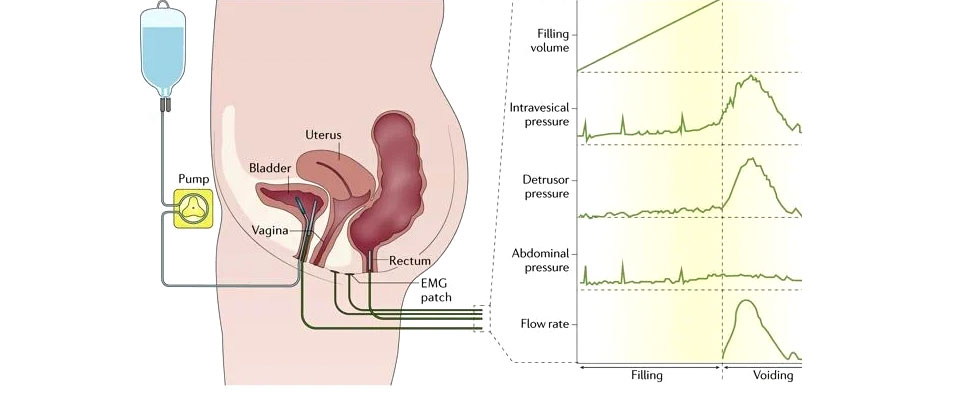

Urodynamic Studies (UDS) are a set of diagnostic tests used to evaluate the function of the bladder, urethra, and sphincter muscles. These studies help determine how well the bladder stores and empties urine, and are particularly useful in diagnosing the cause of urinary incontinence, frequent urination, urgency, difficulty in urination, or incomplete bladder emptying. UDS is often recommended when the underlying cause of urinary symptoms is unclear or when prior treatments have failed to provide relief.
The tests involved in urodynamic studies can include uroflowmetry (measuring urine flow rate), post-void residual measurement (checking how much urine remains in the bladder after voiding), cystometry (assessing bladder pressure and capacity), and pressure flow studies. In some cases, electromyography (EMG) may be used to evaluate the electrical activity of the muscles and nerves controlling urination. These tests are usually performed using thin catheters and specialized sensors, and although they may feel slightly uncomfortable, they are generally safe and well-tolerated.
Urodynamic studies play a crucial role in guiding treatment decisions, especially in patients with complex urinary problems, neurological disorders affecting bladder control, or those considering surgery for incontinence. By providing detailed insights into bladder and urethral function, UDS helps clinicians develop a tailored treatment plan, whether that involves medications, behavioral therapies, pelvic floor exercises, or surgical intervention. The results contribute significantly to improving patient outcomes and overall quality of life.